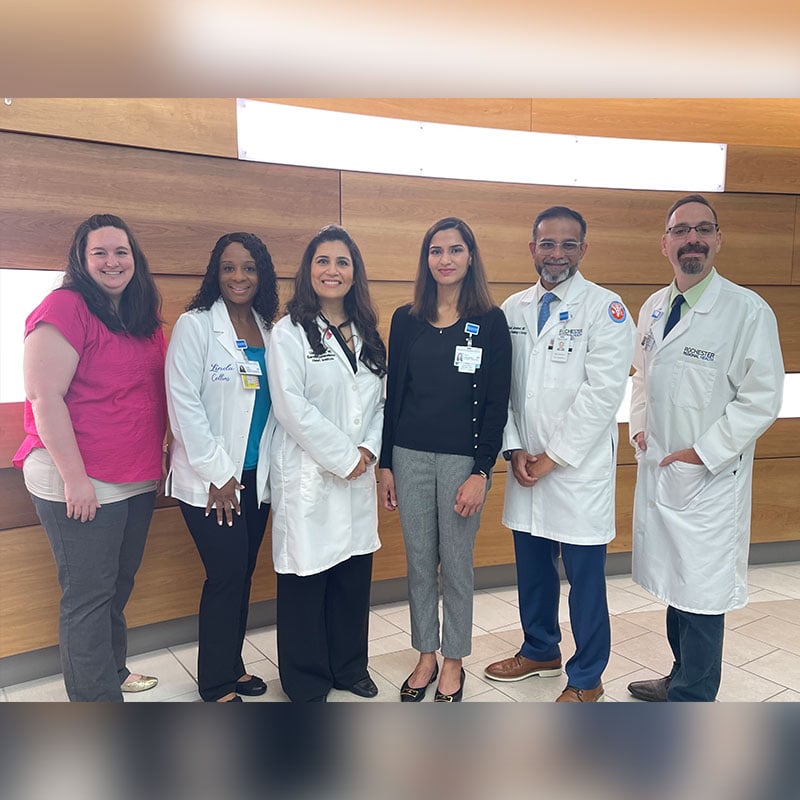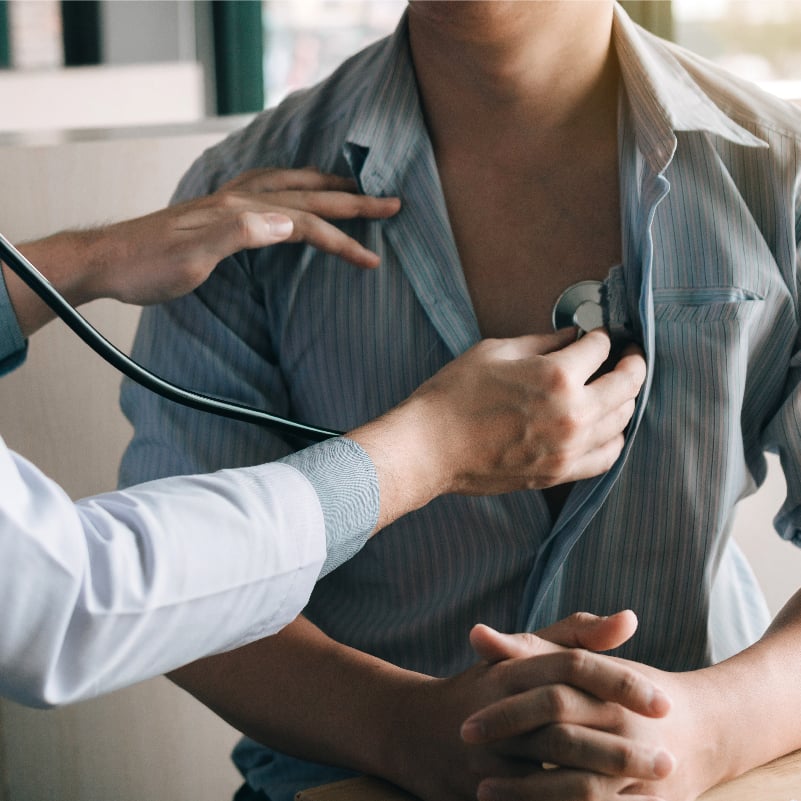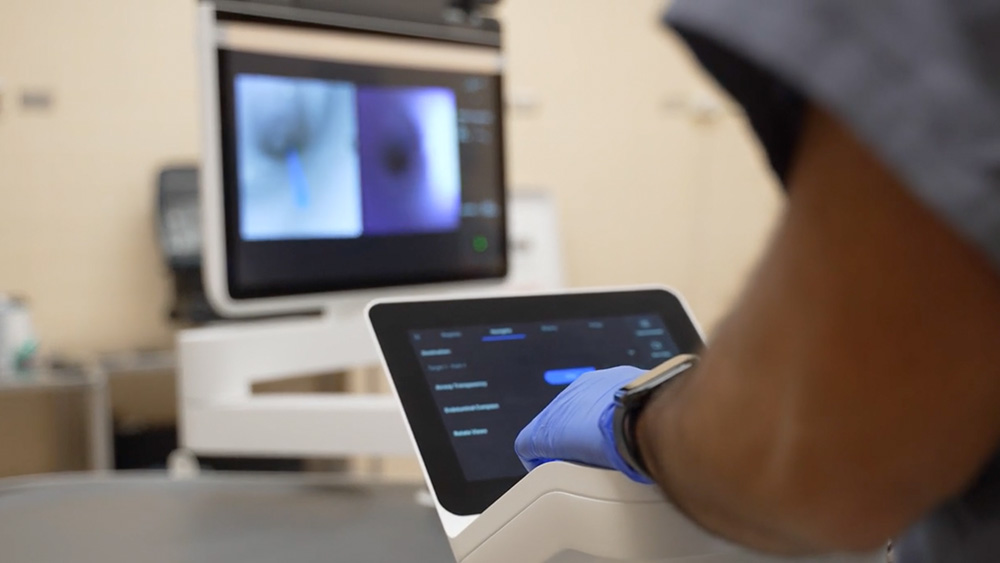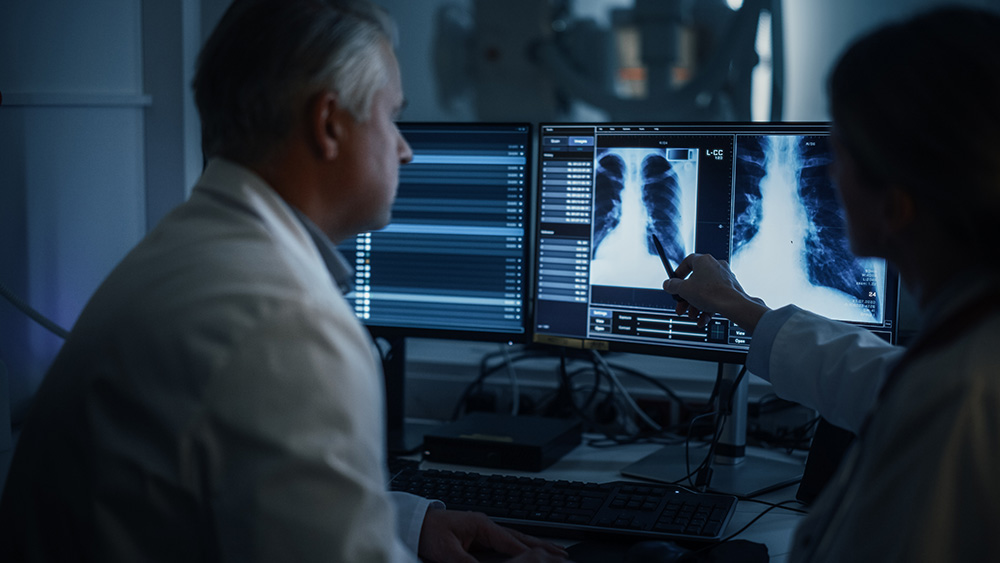Minimizing Heart Risk for Cancer Patients
Cancer treatments can take a toll on your heart. Our specialized cardiac oncology services focus on preventing, diagnosing, and treating heart-related complications that may arise during and after cancer treatment, helping you stay strong through every phase of your journey.
Our Approach to Cardiac Oncology Care
Our nationally recognized cardiac oncology program places equal importance on your heart health and cancer treatment. Our team of cardiologists and oncologists assess your unique health history and treatment plan, and provide customized cardiovascular care before, during, and after cancer treatments. By integrating advanced diagnostics and treatment strategies, we focus on reducing cardiovascular risks, strengthening your heart, and supporting your overall well-being.
Excellence in Cardiac Oncology
Recognized as a Center of Excellence by the International Cardio-Oncology Society, we're devoted to giving our patients the very best care and making sure they get the best results.
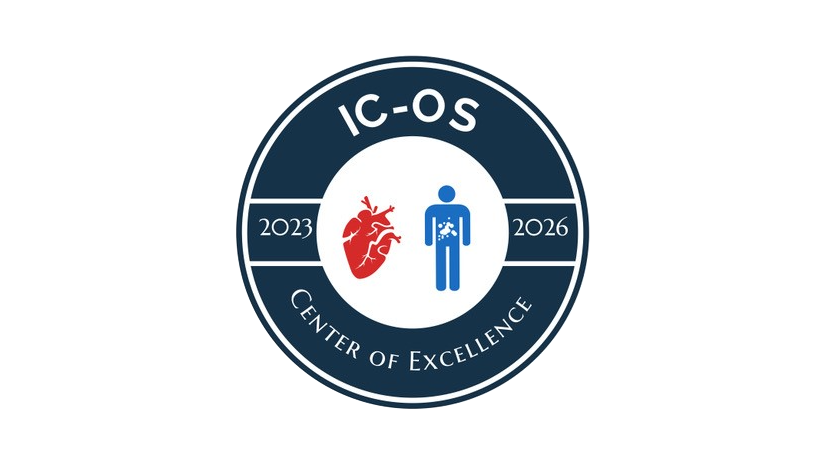
Conditions We Treat
Our cardiac oncology team specializes in the prevention, diagnosis, and management of heart-related issues that can arise during cancer treatment. These may include, but are not limited to:
- Blood clots from cancer or treatments
- Chemotherapy-induced toxicity
- Radiation-induced heart disease
- Heart failure or arrhythmias from cancer treatments
- High blood pressure during cancer treatment
- Heart valve complications related to cancer therapy
Our Services & Treatments
We offer a wide range of specialized services designed to monitor and protect your heart health throughout your cancer treatment and beyond.
- Advanced imaging and testing (echocardiograms, MRIs, and more)
- Comprehensive cardiac risk assessment prior to cancer treatment
- Continuous heart monitoring during chemotherapy and radiation
- Ongoing management of existing heart conditions during cancer therapy
- Personalized heart care plans for cancer survivors
- Preventative medications and interventions
Signs of Heart Complications
Some cancer patients may experience heart-related symptoms that are concerning, such as:
- chest pain
- fatigue
- fluid build-up (edema)
- palpitations
- shortness of breath during regular activities
- weight gain
If you have any of the signs or complications mentioned here, please call (585) 450-8630.

